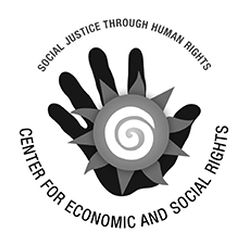By Lim Li Ching, Third World Network (TWN)
Agricultural biodiversity is the basis of the agriculture we need; one that is able to sustainably increase production, nourish people through diverse diets and be resilient to environmental stresses. It is clear that the conventional, industrial model of agriculture is failing on many counts. [fn]IAASTD (2009) and UNCTAD (2013). [/fn] The need for a paradigm shift to biodiversity-based farming practices such as agroecology is increasingly urgent, particularly in the light of climate change. [fn]IPES-Food (2016) and Altieri et al. (2015). [/fn]
Nonetheless, such a transition will be stymied if concentration in the seed and pesticides sectors continues. Already, the Big Six mega-seed and chemical corporations (BASF, Bayer, Dow, DuPont, Monsanto and Syngenta) control 75 percent of the global agrochemical market, 63 percent of the commercial seed market and over 75 percent of private sector research and development (R&D) in seeds/pesticides (see box on agribusiness mega-mergers in Chapter 2). [fn]ETC Group (2015). [/fn]
Currently, regulators around the world are evaluating three mega agri-mergers: Dow Chemical and DuPont; China National Chemical Corporation (ChemChina) and Syngenta; and Bayer and Monsanto. Should these mergers be approved, an oligopoly will end up controlling the world’s food systems.
The combined power and influence of these corporations is bigger than their market share; a variety of inter-firm agreements such as cross-licensing and research and development (R&D) alliances are actually forms of collusion and cartel behaviour, creating barriers to entry and reinforcing their top-tier market power.
This concentration would further squeeze global food systems, locking them onto a narrow technological path, characterized by ongoing dependence on proprietary seed, including genetically engineered seed and agrochemical inputs. [fn]African Centre for Biodiversity (2017). [/fn] The concentration of power in food systems reinforces other lock-ins that result in less diversity in the crops grown, due to the tendency towards standardized, input-intensive crop varieties, to the detriment of traditional varieties and agricultural biodiversity.
The consolidation also means that the companies will be well positioned to access massive banks of genetic data. Efforts such as DivSeek, a large international digital gene-banking project, will facilitate the corporate control and capture of agricultural biodiversity. DivSeek plans to link and facilitate analysis of databases that will host the genomes of hundreds of thousands crop seeds as well as seeds of crop wild relatives, along with characteristic information about them.
Records released under Freedom of Information laws have revealed a DivSeek steering committee’s interest in a Syngenta-proposed funding scheme to sell access to genetic data and apparent acquiescence to the company’s demands on patenting of plant genes, sequences and traits, [fn]Hammond (2016a). [/fn] while a DivSeek founder has offered early access to genetic sequences and patent rights to valuable climate change genes to DuPont and Syngenta. [fn]Hammond (2016b). [/fn] Proprietary control via patents would be the ultimate corporate capture of agricultural biodiversity that is meant to be held in trust.
The mega-seed industry’s agenda includes collaborating with DivSeek to advance a goal of evading benefit-sharing requirements when it accesses genetic resources electronically. The use of synthetic biology technologies, such as gene synthesis and gene editing, means that digital genetic resources data can be used to select, recreate, manipulate and utilize key genes without physically transferring materials – and potentially without implementing benefit-sharing obligations required under the Convention on Biological Diversity (CBD) and the International Treaty on Plant Genetic Resources for Food and Agriculture (ITPGRFA).
Freed of these obligations, the use of these technologies would allow corporations to enjoy the financial fruits of mining international and other seed banks for valuable sequences, while leaving farmers and indigenous peoples – who have nurtured agricultural biodiversity – behind. [fn]Hammond (2017). [/fn] This is a violation of farmers’ rights and removes an incentive to continue conserving and sustainably using agricultural biodiversity.
Lim Li Ching is a Senior Researcher at Third World Network (TWN). She was a lead author of the East and South Asia and the Pacific sub-global report of the International Assessment on Agricultural Science, Technology and Knowledge for Development (IAASTD).
African Centre for Biodiversity (2017): African Centre for Biodiversity Submission to the South African Competition Commission on Bayer-Monsanto Merger. Johannesburg.
https://acbio.org.za/wp-content/uploads/2017/03/ACB-Bayer-Monsanto-Submission.pdf
Altieri, M.A et al. (2015): Agroecology and the design of climate change-resilient farming systems. In: Agronomy for Sustainable Development 35(3), pp. 869-890.
ETC Group (2015): Breaking Bad: Big Ag Mega-Mergers in Play. Dow + DuPont in the Pocket? Next: Demonsanto? ETC Group Communique 115. Ottawa.
www.etcgroup.org/sites/www.etcgroup.org/files/files/etc_breakbad_23dec15.pdf
Hammond, Edward (2017): Thousands of Pages of DivSeek Internal E-Mails Released, Offering Detailed Insight into the Controversial Agricultural “Big Data” Project. Penang: Third World Network.
www.twn.my/title2/biotk/2017/btk170302.htm
Hammond, Edward (2016a): Digital Genebankers Plan to Ignore UN Request on the Impact of Genomics and Synthetic Biology on Access and Benefit Sharing. Penang: Third World Network.
www.twn.my/announcement/digital_genebanks_final_uslet.pdf
Hammond, Edward (2016b): DivSeek Founder Offers Patent Rights on Climate Change Genes to Syngenta and DuPont in Exchange for US$ 400,000. Penang: Third World Network.
www.twn.my/title2/intellectual_property/info.service/2016/ip160504/DivSeek%20Paper%203_25May2016.pdf
IAASTD (2009): Agriculture at a Crossroads. International Assessment of Agricultural Knowledge, Science and Technology for Development., Washington, DC.: Island Press.
www.agassessment.org
IPES-Food (2016): From Uniformity to Diversity: A Paradigm Shift from Industrial Agriculture to Diversified Agroecological Systems. Brussels: International Panel of Experts on Sustainable Food Systems.
www.ipes-food.org
UNCTAD (2013): Wake Up Before It Is Too Late: Make Agriculture Truly Sustainable Now for Food Security in a Changing Climate. Trade and Environment Review 2013. Geneva.
http://unctad.org/en/publicationslibrary/ditcted2012d3_en.pdf








